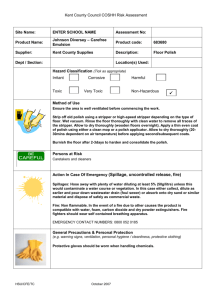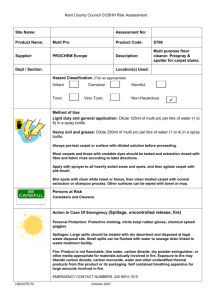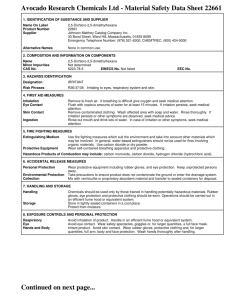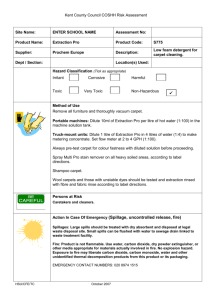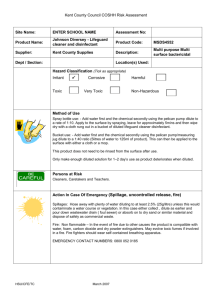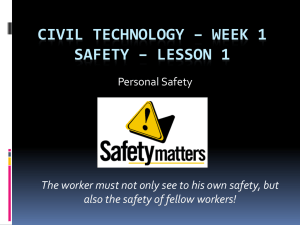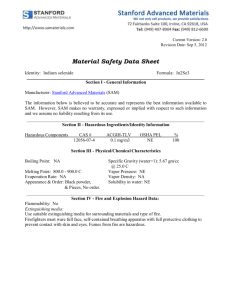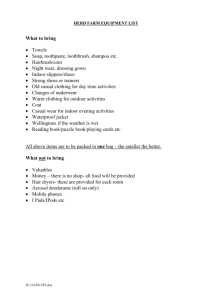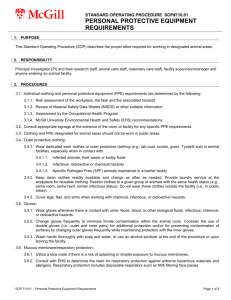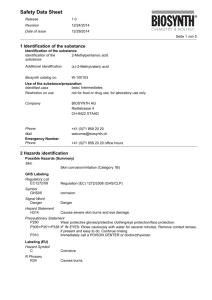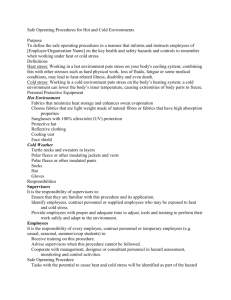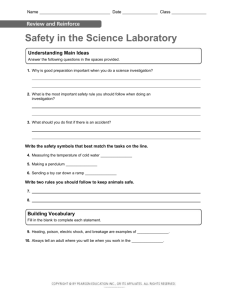Carefree Speed Stripper Johnson Diversey
advertisement
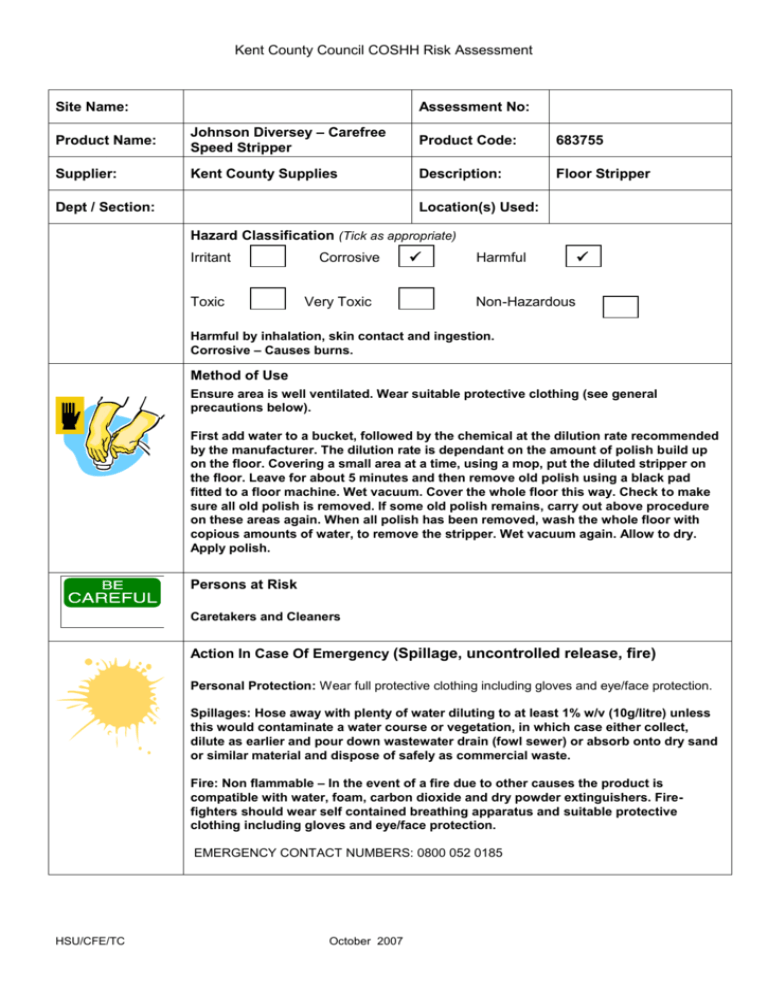
Kent County Council COSHH Risk Assessment Site Name: Assessment No: Product Name: Johnson Diversey – Carefree Speed Stripper Product Code: 683755 Supplier: Kent County Supplies Description: Floor Stripper Dept / Section: Location(s) Used: Hazard Classification (Tick as appropriate) Irritant Toxic Corrosive Very Toxic Harmful Non-Hazardous Harmful by inhalation, skin contact and ingestion. Corrosive – Causes burns. Method of Use Ensure area is well ventilated. Wear suitable protective clothing (see general precautions below). First add water to a bucket, followed by the chemical at the dilution rate recommended by the manufacturer. The dilution rate is dependant on the amount of polish build up on the floor. Covering a small area at a time, using a mop, put the diluted stripper on the floor. Leave for about 5 minutes and then remove old polish using a black pad fitted to a floor machine. Wet vacuum. Cover the whole floor this way. Check to make sure all old polish is removed. If some old polish remains, carry out above procedure on these areas again. When all polish has been removed, wash the whole floor with copious amounts of water, to remove the stripper. Wet vacuum again. Allow to dry. Apply polish. Persons at Risk Caretakers and Cleaners Action In Case Of Emergency (Spillage, uncontrolled release, fire) Personal Protection: Wear full protective clothing including gloves and eye/face protection. Spillages: Hose away with plenty of water diluting to at least 1% w/v (10g/litre) unless this would contaminate a water course or vegetation, in which case either collect, dilute as earlier and pour down wastewater drain (fowl sewer) or absorb onto dry sand or similar material and dispose of safely as commercial waste. Fire: Non flammable – In the event of a fire due to other causes the product is compatible with water, foam, carbon dioxide and dry powder extinguishers. Firefighters should wear self contained breathing apparatus and suitable protective clothing including gloves and eye/face protection. EMERGENCY CONTACT NUMBERS: 0800 052 0185 HSU/CFE/TC October 2007 Kent County Council COSHH Risk Assessment General Precautions & Personal Protection (e.g. warning signs, ventilation, personal hygiene / cleanliness, protective clothing) Hand: Use gloves resistant to Sodium Metasilicate. Nitrile gloves should be suitable for this purpose. Eyes: When handling neat product wear eye/face protection to EN166 Skin: Wear protective overalls or bib resistant to alkalis. Respiratory: Respiratory protection should normally be achieved through product containment, extract ventilation or other suitable engineering techniques. For low levels of exposure use suitable mask for aqueous mists. Ecological Information Less than 5%: Anionic surfactants Less than 5%: E.D.T.A Less than 5%: Nonionic surfactants Emergency First Aid Treatment (Eyes, skin, swallowed, inhaled) Eyes: Rinse immediately with copious amounts of water, holding eyelids open and obtain immediate medical attention. Skin: Remove contaminated clothing and wash thoroughly before re-use. If irritation persists or there is any sign of tissue damaged seek medical advice. Inhalation: Remove from source of exposure. Seek medical advice if effects persist. Ingestion: Remove product from mouth, give the casualty a small quantity of water to drink and seek medical advice. DO NOT induce vomiting. Handling, Storage, Disposal & Transport Information Avoid contact with skin, eyes and clothing. Wear suitable gloves and eye/face protection. Do not mix with any other chemical. Store upright in original container in a secure cool place. Protect from frost. Assessment Of Risk Low Medium High Notes / Further Action NEVER USE CHEMICALS THAT YOU ARE NOT TRAINED OR AUTHORISED TO USE. Assessment By Date: (Name & Job Title) HSU/CFE/TC October 2007 Next Review Date: Kent County Council COSHH Risk Assessment Review Record Date HSU/CFE/TC Reviewed By October 2007 Result / Action Taken
